This article shines a light on seven free resources for behavior plan templates tailored for autism, making them a valuable tool for both parents and clinicians. These templates play a crucial role in developing effective behavioral strategies grounded in Applied Behavior Analysis (ABA). Plus, with exciting innovations like AI technology, the process becomes even smoother and more personalized for each intervention.
Let’s explore this together! These resources not only simplify the planning process but also help create a supportive environment for our loved ones. By sharing these tools, we aim to connect with you, understanding the challenges you face and offering a helping hand.
We’re here to help you every step of the way! Dive into these resources and discover how they can enhance your approach to behavioral strategies. Your journey matters, and with the right support, you can make a meaningful impact.
Creating effective behavior plans for children with autism can feel like a daunting task for many parents and caregivers. We understand the challenges you face, and with the growing need for personalized support strategies, having access to free resources can truly empower families. These resources can help you design tailored interventions that meet your child's unique needs.
But what if these resources were not only easy to find but also enhanced by innovative technologies? Let’s dive into seven invaluable behavior plan templates that not only simplify the planning process but also integrate cutting-edge solutions.
Together, we can transform the way autism support is delivered, making it more accessible and effective for everyone involved. We’re here to help you every step of the way!
At Rori Care, we understand the unique challenges parents face when supporting their children with autism. That’s why we offer a diverse selection of comprehensive behavior strategy templates designed specifically for autism support, including a behavior plan template free, all grounded in the principles of Applied Behavior Analysis (ABA). These behavior plan template free resources are thoughtfully crafted to meet the distinct needs of each child, helping clinicians and families create organized, data-informed strategies that promote effective support while tracking progress over time.
What’s even more exciting? We’ve incorporated advanced AI technology to enhance the usability and adaptability of these templates. This means automatic progress report creation, freeing up 50% more time for treatment! 🌟 This innovation not only simplifies the support process but also empowers caregivers with the essential ABA principles and strategies needed to assist their children in achieving their behavioral goals.
As the demand for personalized and effective autism interventions continues to grow, our commitment to leveraging technology ensures that these templates remain relevant and impactful well into 2025 and beyond. To make the most of these action plan templates, we encourage parents to actively engage in the development and implementation process. After all, customizing these plans to fit your child’s specific needs is key to their success.
Let’s explore this journey together! Your involvement can in your child’s progress. We’re here to help you every step of the way!
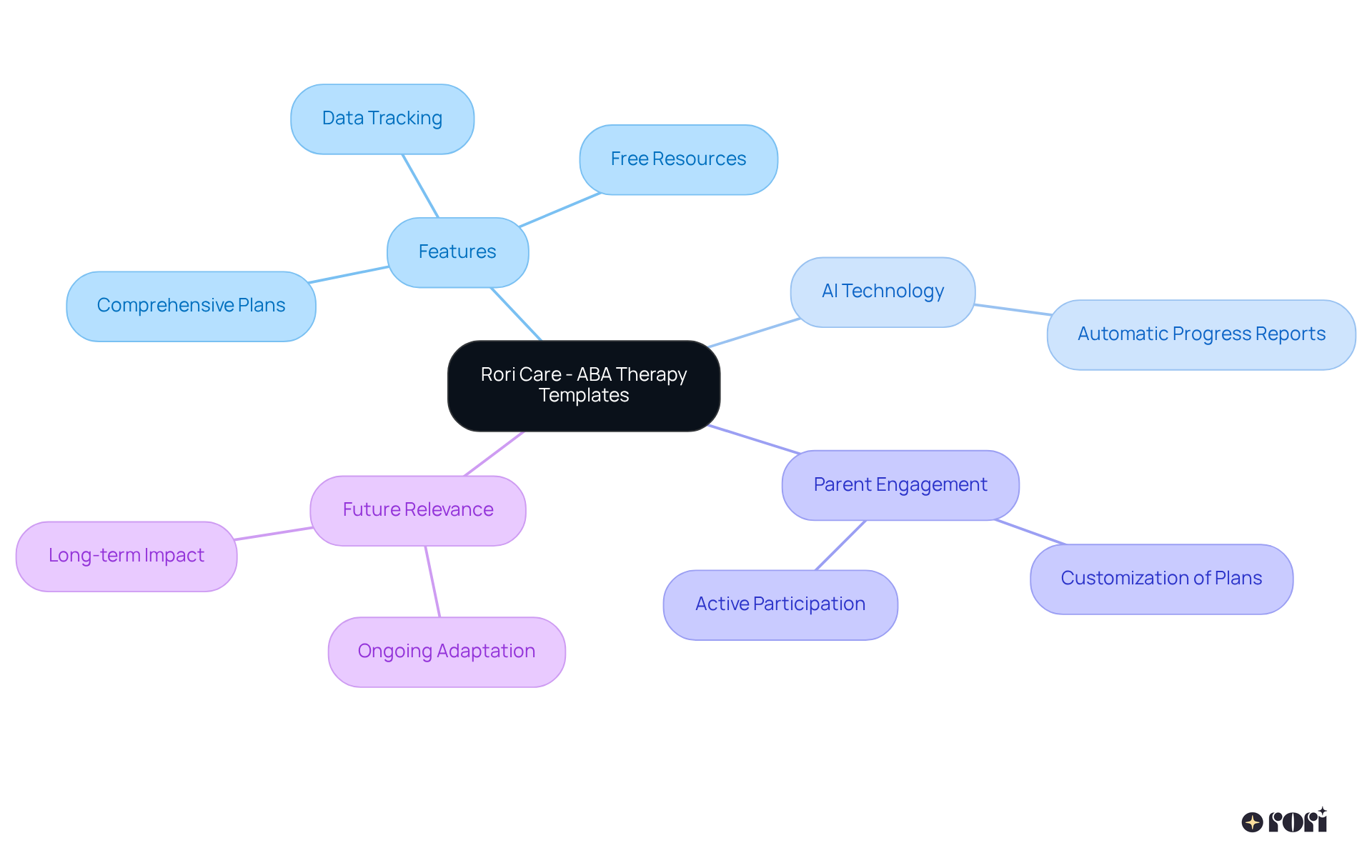
At MasterABA, we understand that utilizing a behavior plan template free can make creating an effective Behavior Intervention Plan (BIP) less overwhelming. It’s crucial to start with a clear definition of target behaviors. This clarity helps caregivers and clinicians focus on specific actions that need a little tweaking. Measurable goals are just as important! They should be SMART—Specific, Measurable, Achievable, Relevant, and Time-bound. For example, a goal could be that a student will raise their hand quietly and wait to be called upon at least three times during each group activity.
Now, let’s talk about data collection methods. These are vital for keeping track of progress and making adjustments when needed. At Rori Care, we make it easy by employing automatic data gathering during clinical sessions. This means our clinical team is always there for your loved one without interrupting the flow of therapy. Plus, this data is securely stored, anonymized, and deleted after analysis, giving you peace of mind. Did you know that strategies executed with 80% or greater fidelity are three times more likely to succeed? It’s true! And about 60% of BIP implementations face challenges due to inconsistent application across different settings. That’s why regular evaluations of the BIP, ideally every three months, are so important. They ensure that strategies stay .
What’s even better? Our behavior care engine updates behavior strategies and skill acquisition outlines after each session based on achieved progress. This adaptability makes treatment approaches even more effective! Remember, the collaborative nature of creating and implementing a BIP—where parents, teachers, and therapists come together—is key to its success. By focusing on these elements, we can create a thorough and adaptable behavior plan template free that truly supports your child’s growth and development. Let’s explore this together and ensure your loved one gets the best support possible!
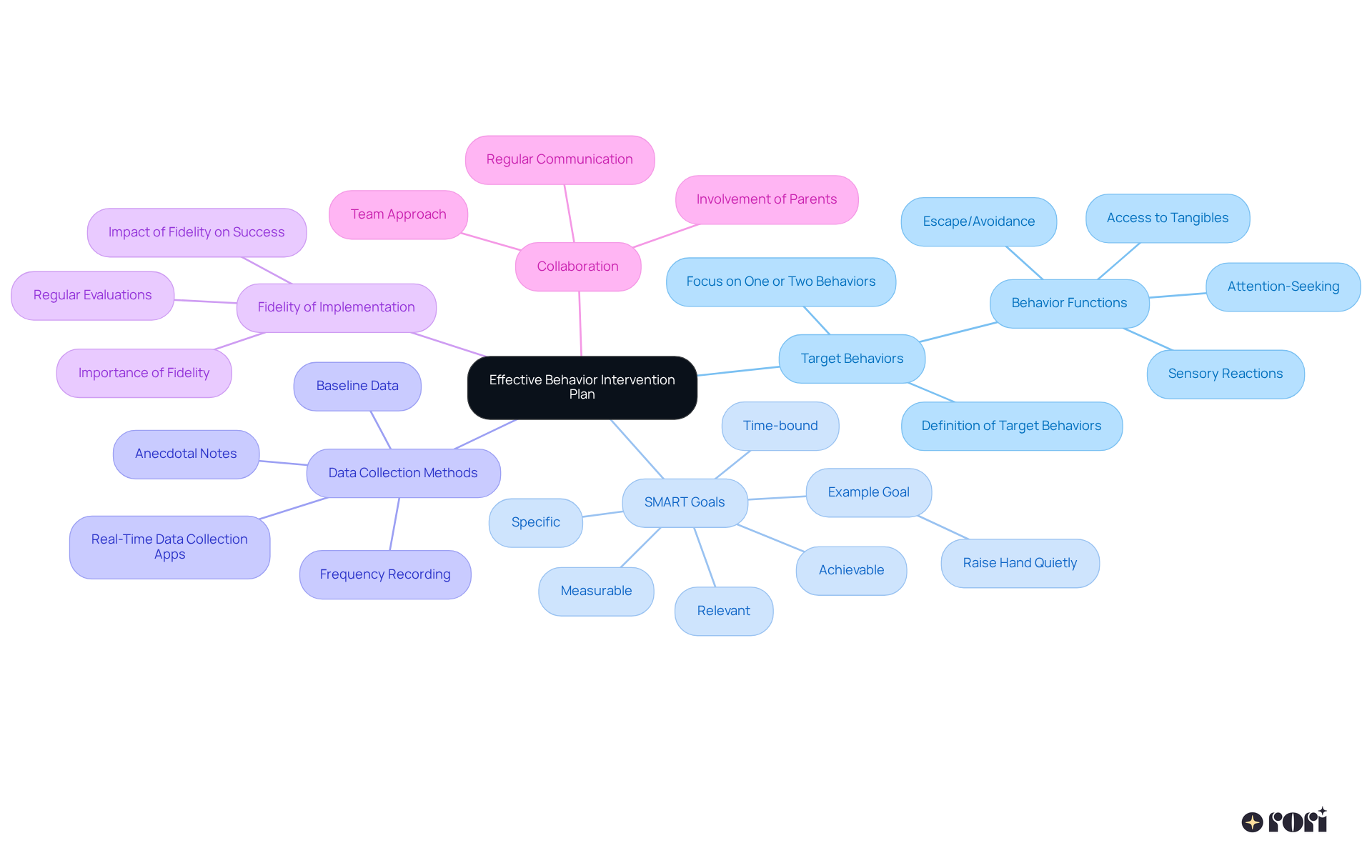
At Panorama Education, we understand that developing effective intervention plans can be a challenge for parents. It all begins with a thorough evaluation to pinpoint the unique needs and challenges of your child. From there, caregivers are encouraged to set clear, attainable goals that align with their child’s developmental milestones. Research shows that early support is crucial for long-term success. In fact, children who engage in ABA therapy early on often make significant strides in their communication and social skills.
Next, it’s important to choose support strategies based on evidence-based practices, ensuring they fit your child’s specific circumstances. As Ralph Moller wisely states, 'A customized strategy considers the distinct requirements and choices of the individual, enabling tailored approaches that are most effective for their particular challenges.' Regular evaluations and adjustments to the plan are key to maintaining its effectiveness and relevance, allowing for changes that support your child’s ongoing growth.
Involving your family in the therapy process can greatly enhance its effectiveness and outcomes. It’s vital for caregivers to take an active role in the intervention journey. By understanding ABA principles and strategies, you can make informed choices that positively impact your child’s progress. To really , why not set aside some time each week to review progress and strategies with your child? This collaborative approach not only empowers you but also strengthens the bond between you and your child. Let’s explore this together!
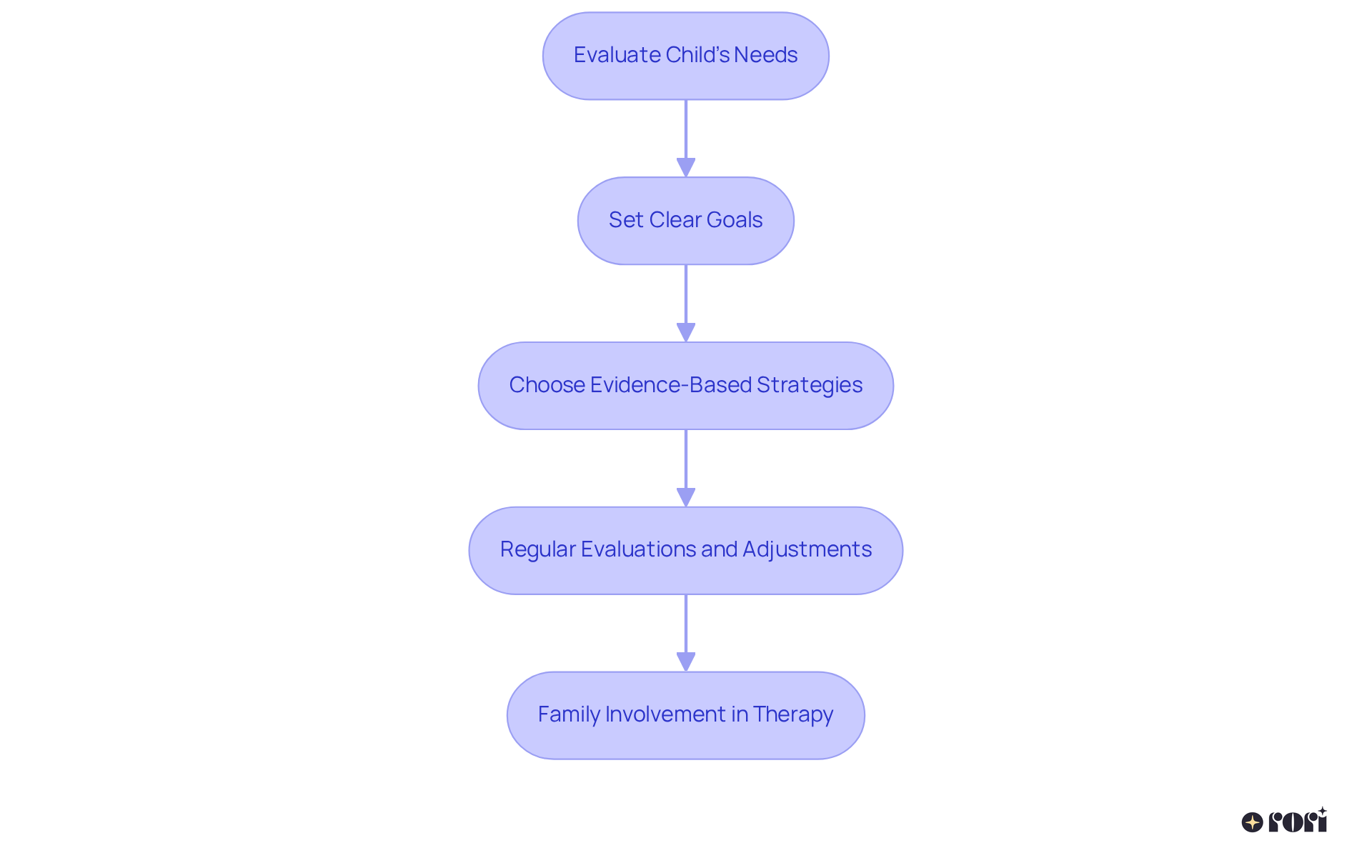
At Autism Classroom Resources, we provide essential tools, such as a behavior plan template free, to help create effective support plans, including templates, checklists, and comprehensive guides. These resources empower both educators and parents to build structured environments that truly facilitate learning and development. By utilizing these tools, caregivers can apply techniques that not only encourage positive actions but also enhance social abilities and nurture independence in individuals with autism.
The partnership between teachers and families is so important! It ensures consistency in behavior management and maximizes the potential for success. Research shows that when families actively engage in creating and implementing behavior strategies, kids see better results. This highlights just how crucial a coordinated approach is in autism assistance.
Our method focuses on flexible treatment strategies that we regularly update based on progress report data. This way, each behavior plan template free is tailored to meet the unique needs, strengths, challenges, and goals of the youth. With this individualized planning, combined with measurable goals and evidence-based strategies, caregivers are empowered with the . This enables them to effectively support their child's behavioral development. Plus, the positive effects of ABA therapy on adaptive skill enhancement really underscore the benefits of working together with families and professionals.
Let’s explore this journey together! We’re here to help you every step of the way!
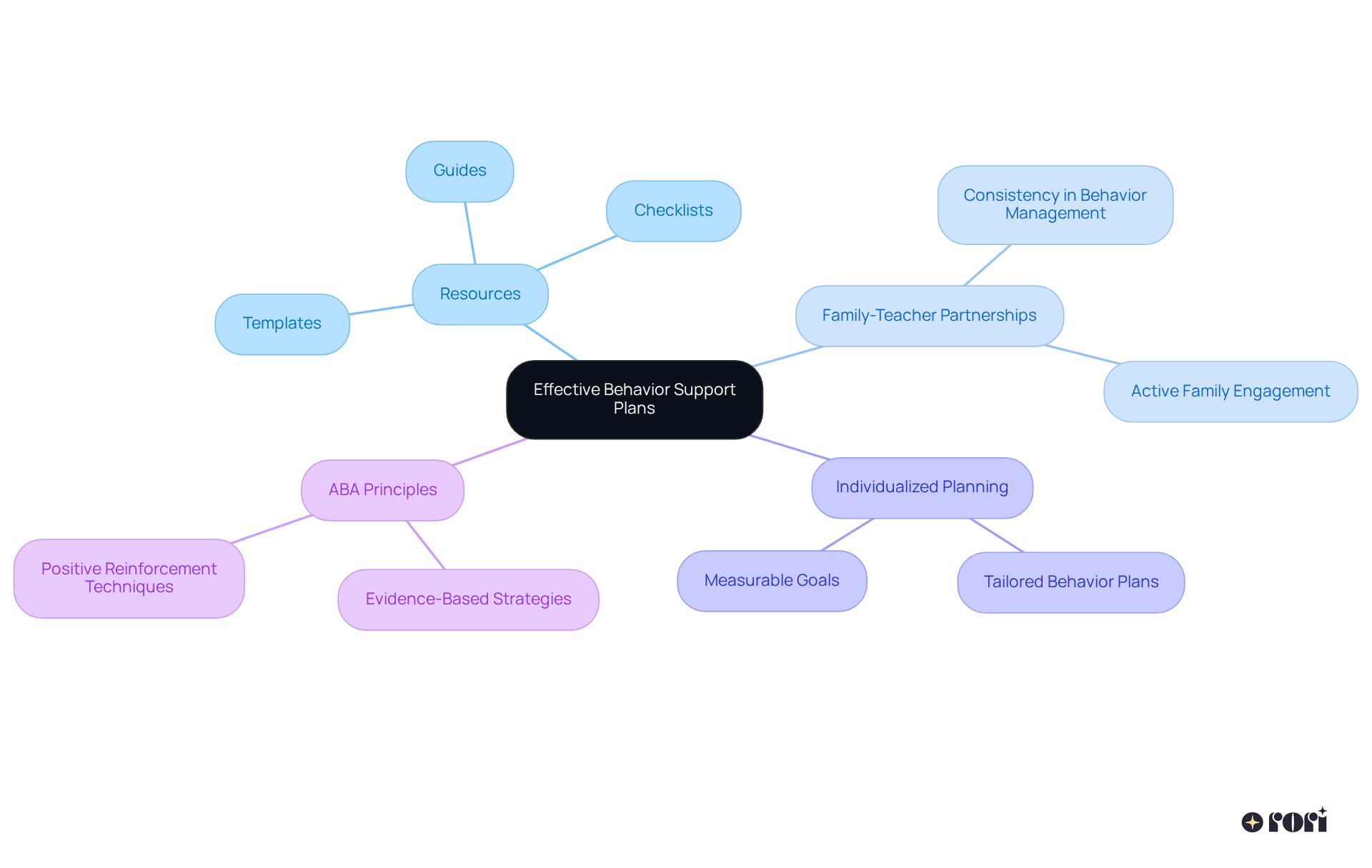
Understanding the roles of actions is crucial for developing to modify behavior. Many behaviors serve specific purposes, like seeking attention, avoiding tasks, or gaining access to favorite items. Did you know that around 40% of people with autism experience anxiety disorders? This can really impact their actions and often requires tailored interventions. By accurately identifying these functions, caregivers can utilize a behavior plan template free to create focused strategies that address the root causes of challenging behaviors. This not only boosts the effectiveness of support strategies but also fosters a deeper understanding of each individual's unique needs, leading to more compassionate and effective assistance.
At Rori Care, our care engine performs functional analysis for targeted actions and skills, automatically generating progress reports for clinicians to review. This integration empowers caregivers with ABA principles and strategies, allowing them to actively engage in their child's behavioral goals through data collection and informed decision-making. For instance, interventions that focus on positive reinforcement can significantly enhance adaptive behaviors. Research indicates that ABA therapy boasts an impressive success rate of over 89% in improving communication and social skills in individuals with autism. Ultimately, understanding the roles of actions is a vital step in developing personalized strategies using a behavior plan template free to help children with autism thrive. Let’s explore this together!
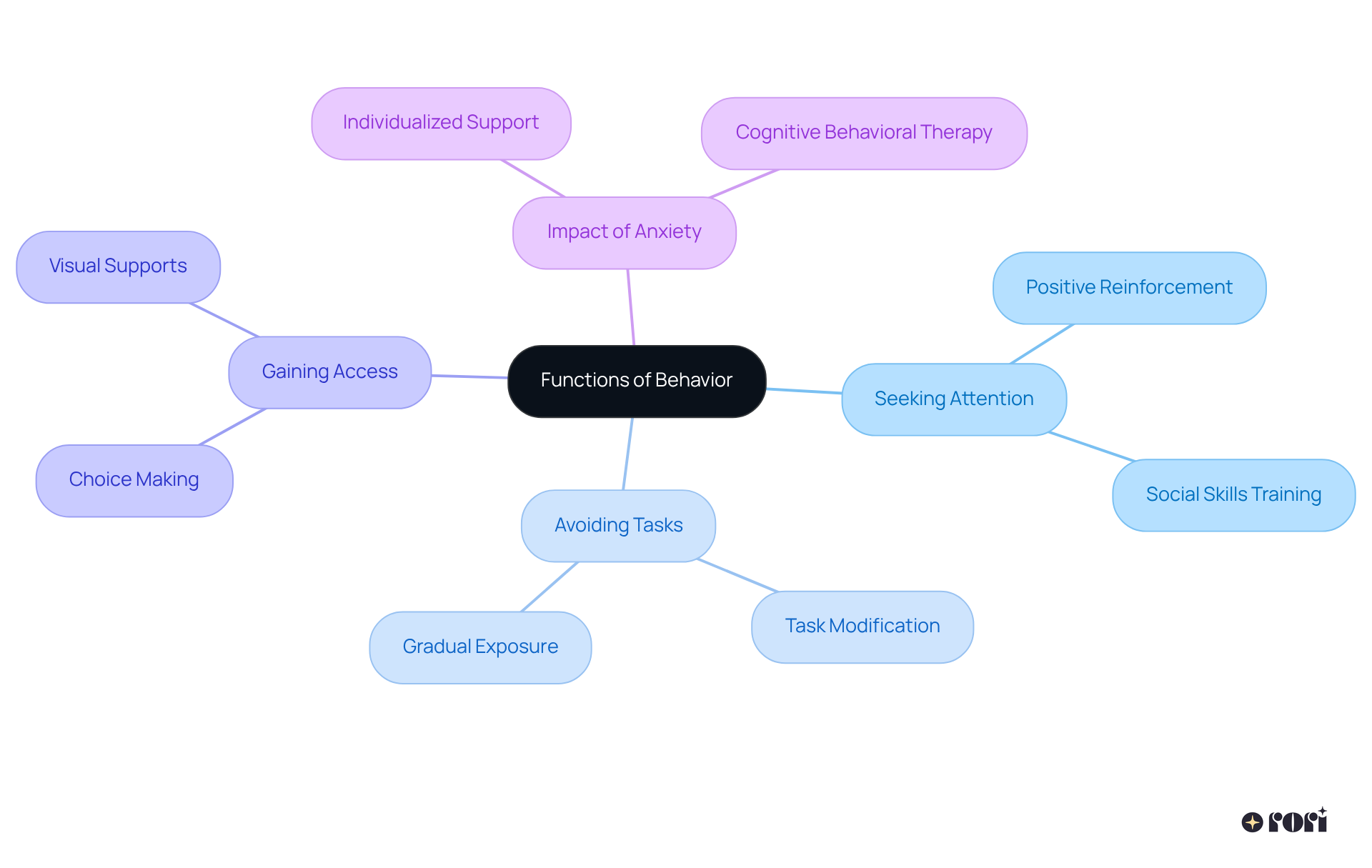
Gathering effective data is so important for improving treatment plans in autism therapy! Techniques like frequency recording, interval recording, and ABC (Antecedent-Behavior-Consequence) charts really help us understand behavior patterns and what triggers them. For example, frequency recording allows caregivers to see how often certain actions happen, giving a clear starting point for assessing how well different strategies are working.
By keeping track of actions systematically, caregivers can evaluate the impact of various strategies and make thoughtful changes to their approach. This focus on data not only enhances accountability but also fosters in autism care. It ensures that strategies are tailored to meet each child's unique needs. Let’s explore this together and see how we can make a difference!
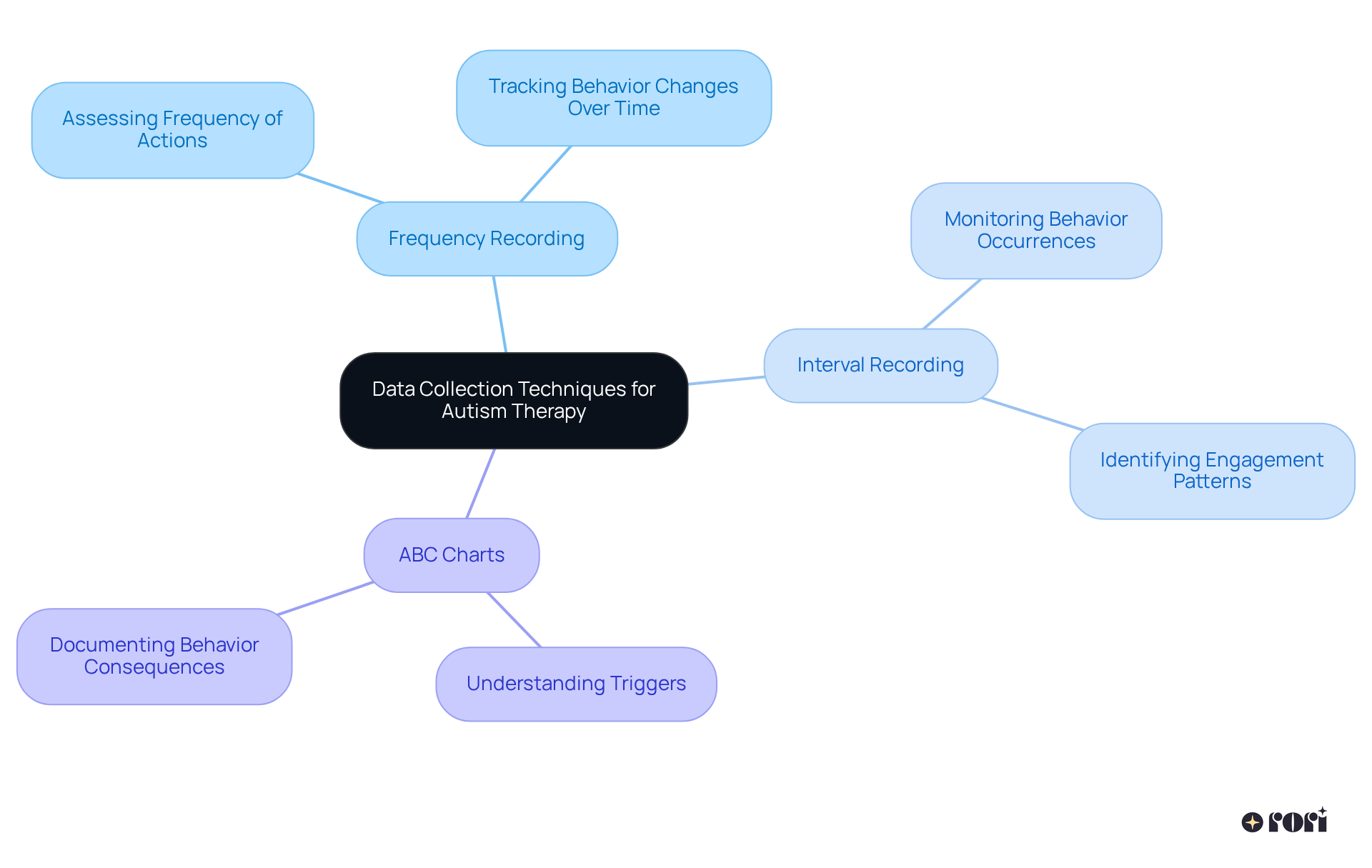
Assessing action plans is all about setting clear metrics for success and improvement. Key performance indicators (KPIs) in autism support strategies often include:
For example, research shows that long-term, intensive ABA programs can lead to significant improvements in various skills over a 12 to 24-month period.
Regularly checking these metrics helps caregivers see how effective their actions are and make informed decisions about any changes needed. This ongoing assessment is crucial for ensuring that the support plan remains relevant and effective in meeting each individual's unique needs. By using standardized tools like the Vineland Adaptive Behavior Scales, caregivers can track progress and confirm that their strategies are yielding positive results. Ultimately, this nurtures a supportive environment for the child's development.
Let’s explore this together! Your journey in is important, and we’re here to help you every step of the way!
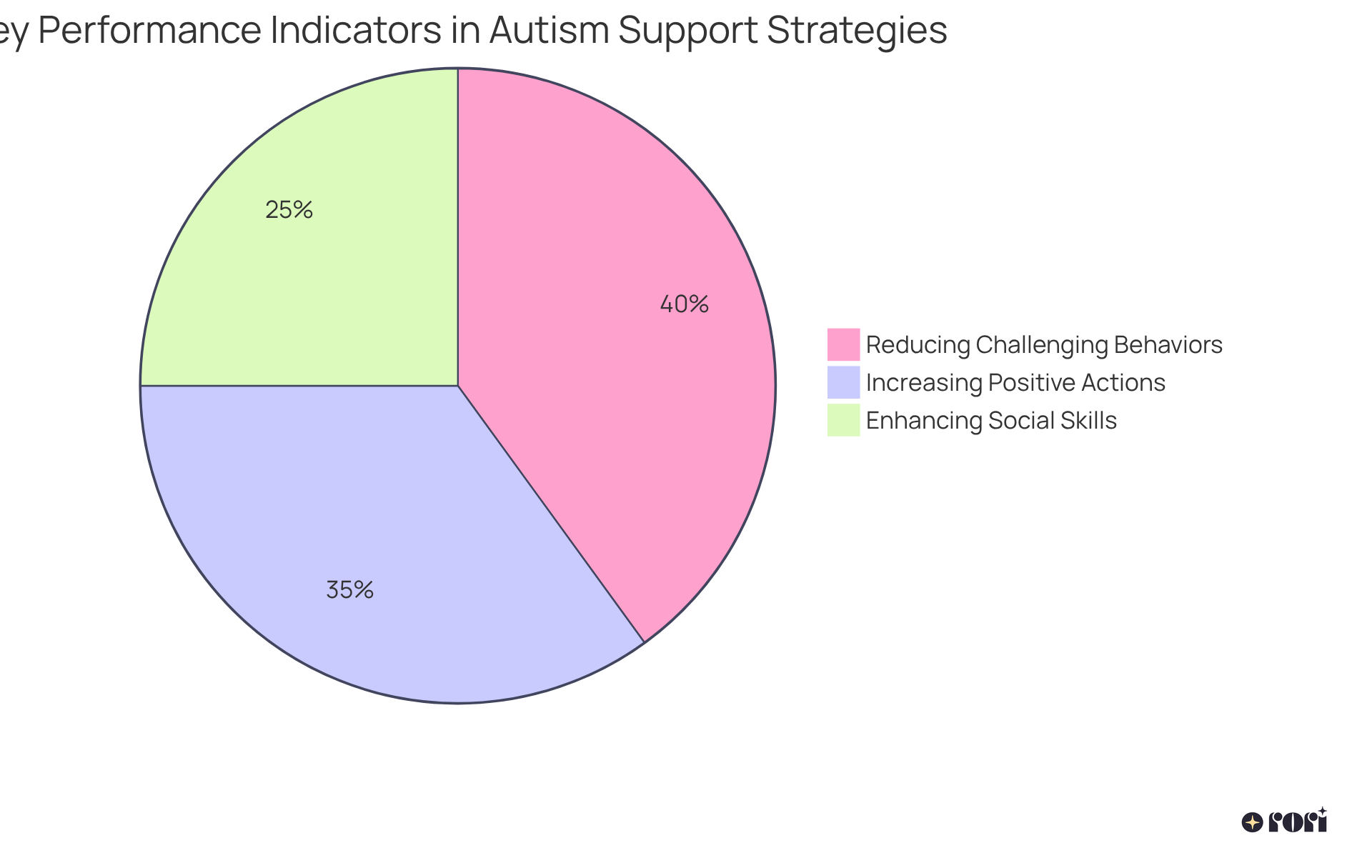
[Parent-led ABA solutions](https://rori.care/post/10-heartfelt-autism-mom-quotes-that-celebrate-the-journey-of-parenting) allow families to actively join in planning and strategies, making sure that approaches fit perfectly into their young one's home environment and daily routines. This teamwork not only boosts the effectiveness of interventions but also nurtures a sense of ownership and accountability among families. Research shows that when parents are involved in creating and executing management plans, the results for youngsters improve significantly.
At Rori Care - ABA Therapy, we truly believe in this proactive collaboration! We provide parents with over 40 hours of , including handy tools like tracking apps and resource guides, to help them navigate their child's therapy journey with confidence. By embracing this model, families can make a meaningful contribution to their child's progress, reinforcing learning and behavioral strategies in real-world settings.
The knowledge and skills gained through caregiver education not only boost caregivers' confidence but also help reduce stress and enhance overall family dynamics. As expert Madalina Ciobanu points out, "Parent-led ABA can lead to goal achievement and improved clinical outcomes and may be a viable solution to overcome treatment access barriers that delay initiation or continuation of care."
Plus, did you know that the average utilization rate of 80.2% in parent-led models is much higher than in traditional settings? This really highlights how effective and accessible these solutions can be! Let’s explore this together and see how we can make a difference in your child’s journey!
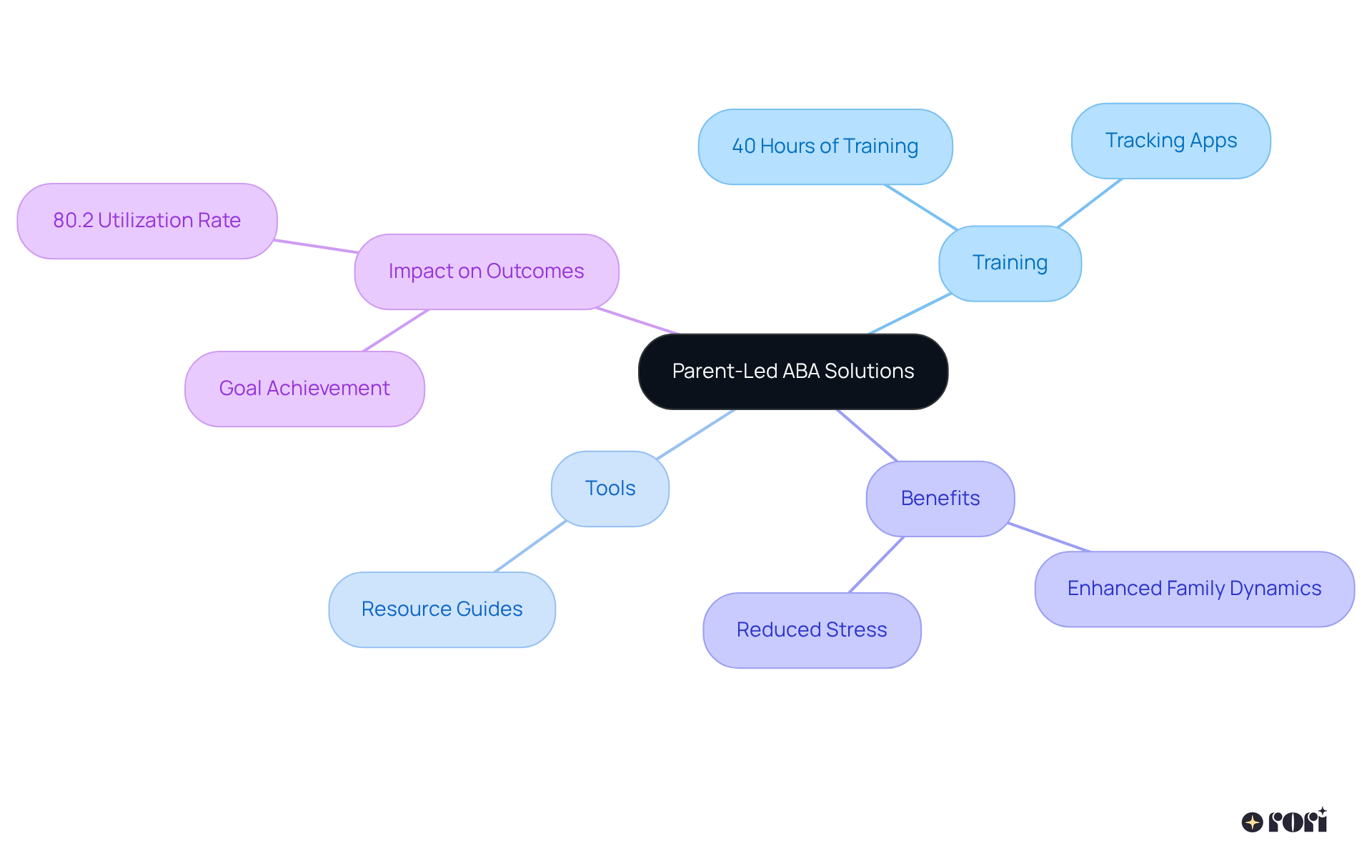
AI-driven customization is truly transforming how we create and implement a behavior plan template free for individuals with autism. By diving into extensive datasets, AI uncovers patterns and preferences that help shape tailored interventions. This exciting technology allows healthcare providers to craft personalized treatment plans that adapt to each person's unique needs and growth.
At Rori Care, our dedicated analysts employ evidence-based methods and set clear, measurable goals for change. This way, we ensure that every individual's therapeutic journey is optimized for success. Recent advancements in AI have shown remarkable improvements in treatment outcomes. Studies suggest that AI-driven interventions can lead to more effective strategies for a behavior plan template free for behavior modification.
But that’s not all! Our innovative approach combines personalized therapy with cutting-edge AI to automate progress report generation. This means we can free up 50% more time for actual treatment! As a result, families and therapists are better equipped to support the growth of young individuals, fostering independence and enhancing social skills.
Let’s explore this together! We’re here to !
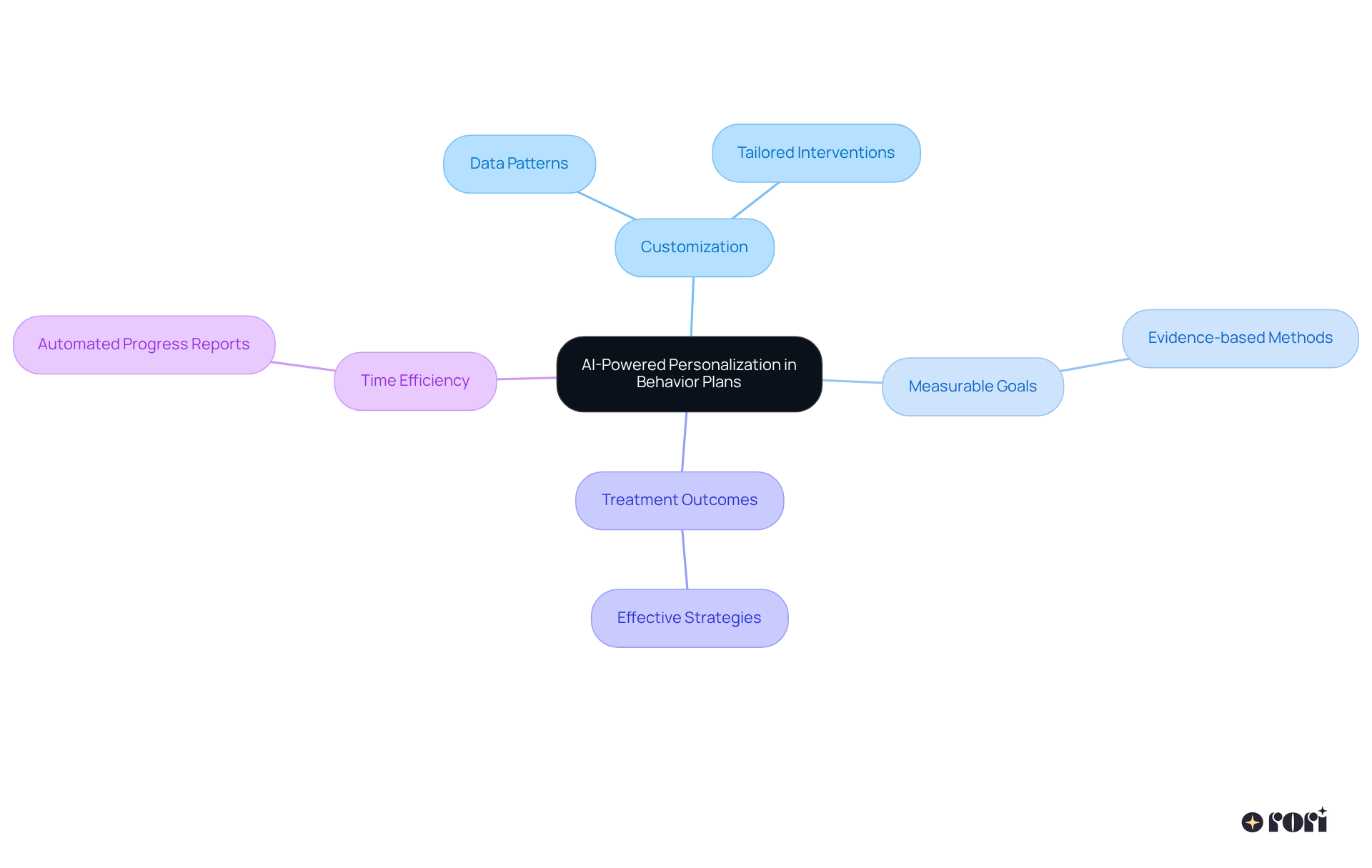
Creative approaches for changing actions are so important in enhancing autism support! Methods like:
can really make a difference in the lives of individuals with autism. For instance, studies show that rewarding preferred actions through positive reinforcement can lead to lasting changes in behavior and increased engagement.
And guess what? Technology is also playing a huge role! With apps and interactive tools, we can engage kids in a way that makes learning and not just effective but also fun. By embracing these innovative strategies and keeping up with the latest research, caregivers and clinicians can create supportive environments that truly foster positive development for children with autism. Let’s explore this together and see how we can make a difference!
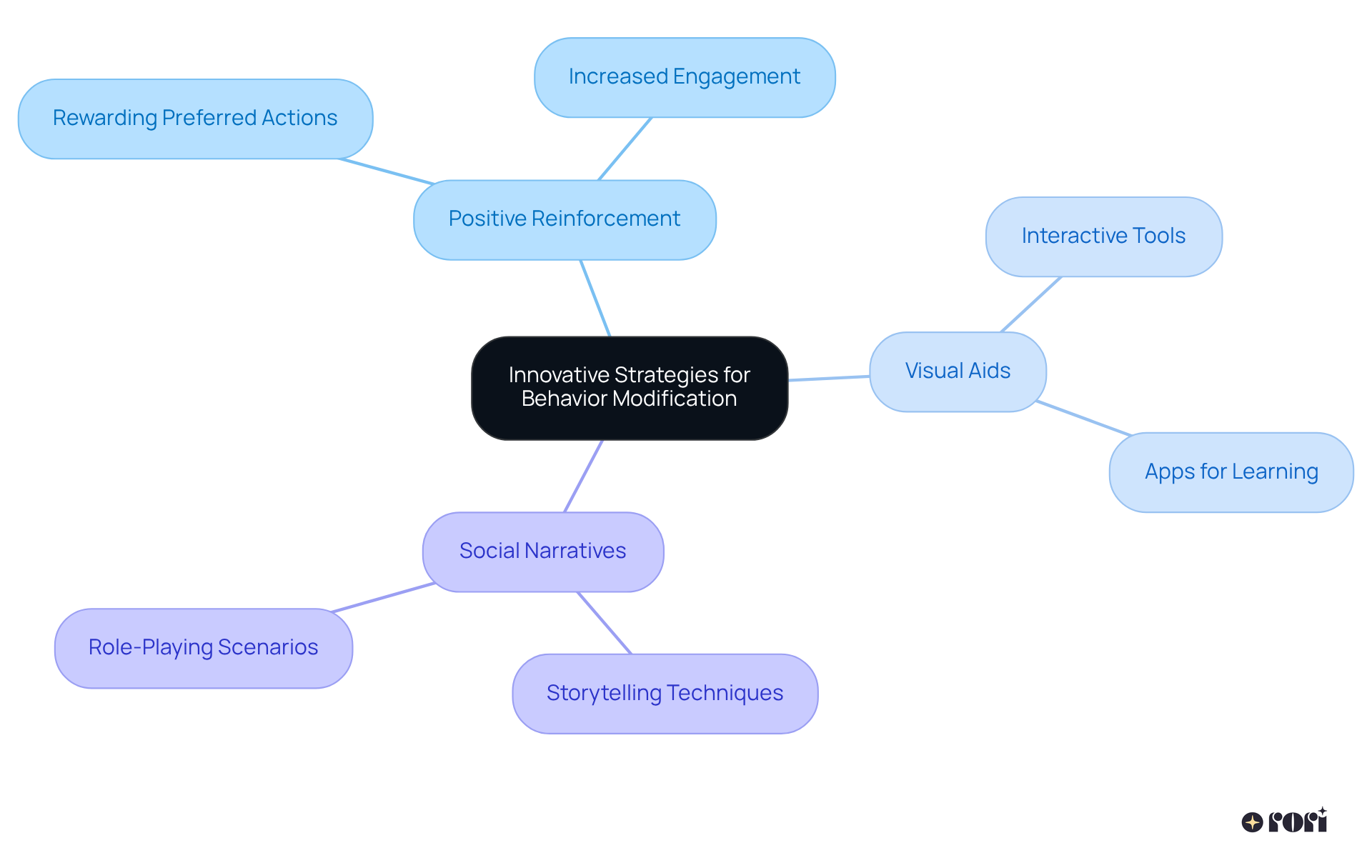
Creating effective behavior plans for children with autism is essential for fostering their development and enhancing their quality of life. The resources and strategies outlined in this article highlight the importance of tailored interventions that cater to the unique needs of each child. By utilizing free behavior plan templates, caregivers can implement structured and data-informed strategies that promote positive outcomes.
It’s so important to recognize the value of collaboration among parents, educators, and clinicians in developing and executing behavior intervention plans. Imagine the difference it makes when everyone works together! Plus, the integration of technology, like AI-driven personalization and data collection techniques, can really enhance the effectiveness of these plans. Regular evaluations and adjustments based on measurable goals ensure that strategies remain relevant and impactful.
Ultimately, supporting children with autism is a collaborative journey that requires dedication and informed decision-making. By embracing innovative strategies and actively participating in the planning process, families can empower their children to thrive. Engaging with these resources not only fosters better communication and social skills but also nurtures independence, making a meaningful difference in their lives. Let’s explore this together! We’re here to help you every step of the way!
What is Rori Care's approach to supporting children with autism?
Rori Care offers a diverse selection of comprehensive behavior strategy templates specifically designed for autism support, grounded in the principles of Applied Behavior Analysis (ABA). These templates help clinicians and families create organized, data-informed strategies that promote effective support and track progress over time.
How do Rori Care's behavior plan templates utilize technology?
Rori Care incorporates advanced AI technology to enhance the usability and adaptability of their behavior plan templates, allowing for automatic progress report creation and freeing up 50% more time for treatment.
Why is parent involvement important in the behavior plan development process?
Active parental engagement in the development and implementation of behavior plans is crucial for customizing the plans to fit the child's specific needs, which is key to their success.
What are the key components of an effective Behavior Intervention Plan (BIP) according to MasterABA?
Key components include a clear definition of target behaviors, SMART (Specific, Measurable, Achievable, Relevant, Time-bound) goals, and effective data collection methods to track progress and make necessary adjustments.
How does Rori Care ensure data privacy during therapy sessions?
Rori Care employs automatic data gathering during clinical sessions, ensuring that data is securely stored, anonymized, and deleted after analysis for peace of mind.
Why is regular evaluation of the BIP important?
Regular evaluations, ideally every three months, are important to ensure that strategies stay aligned with the individual's evolving needs and to address challenges that may arise due to inconsistent application across different settings.
What steps should parents take to craft a successful intervention plan?
Parents should start with a thorough evaluation of their child's unique needs, set clear and attainable goals, choose evidence-based support strategies, and regularly evaluate and adjust the plan to maintain its effectiveness.
How can family involvement enhance the effectiveness of ABA therapy?
Involving family members in the therapy process enhances outcomes by empowering caregivers to understand ABA principles and strategies, thereby making informed choices that positively impact their child's progress.